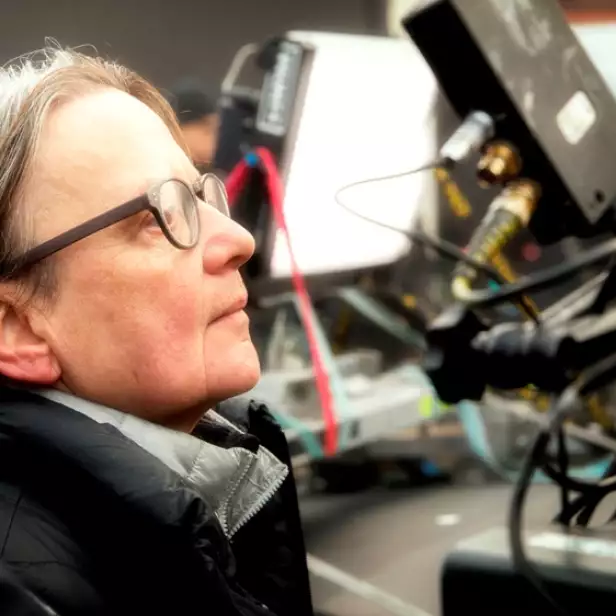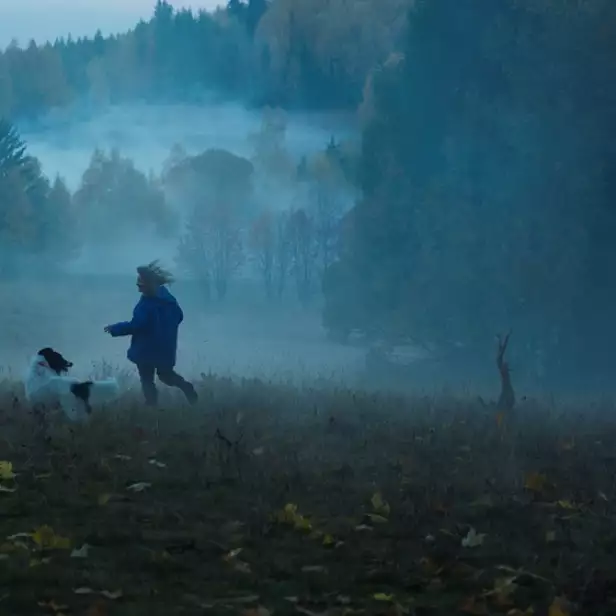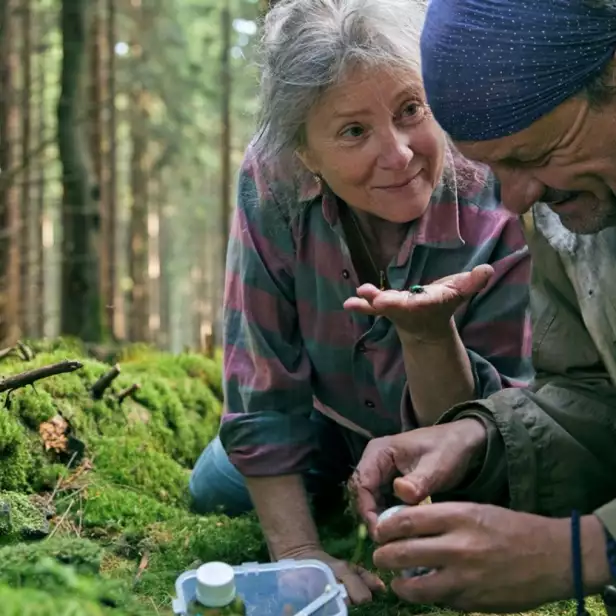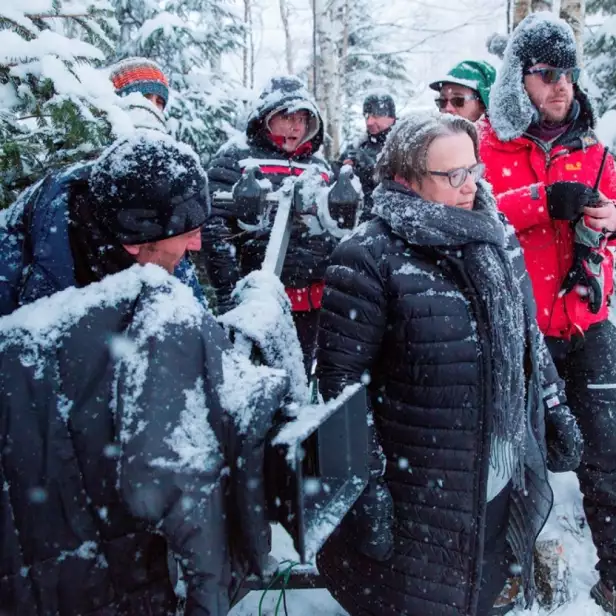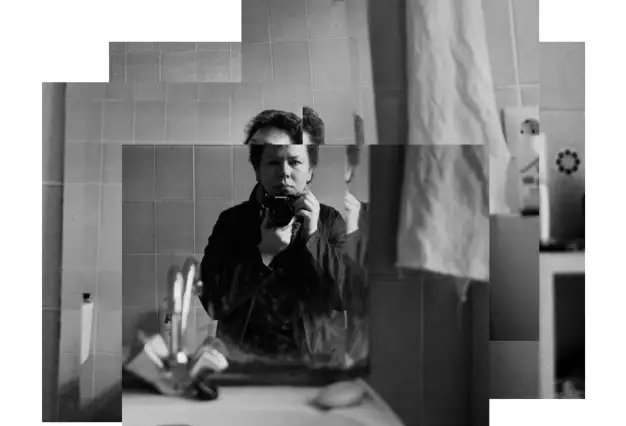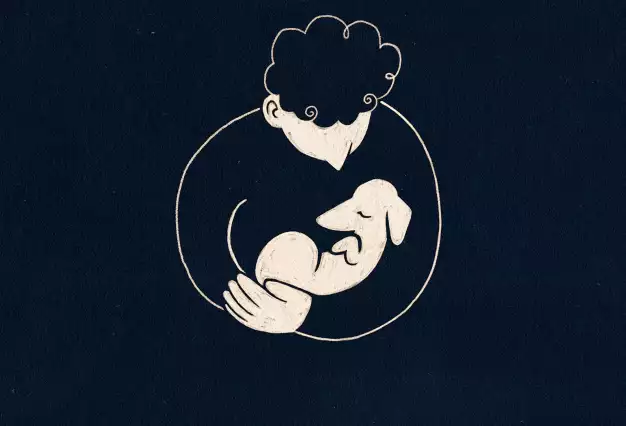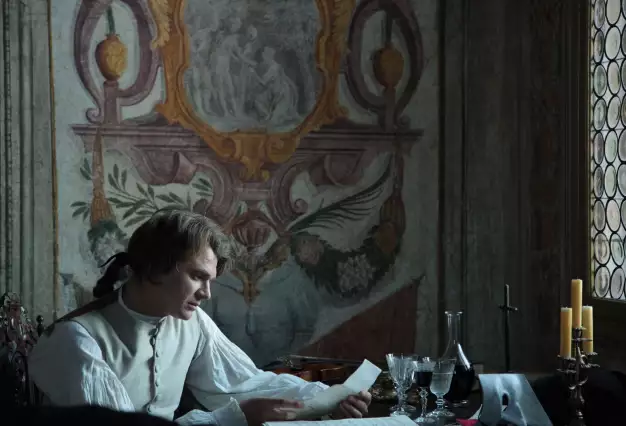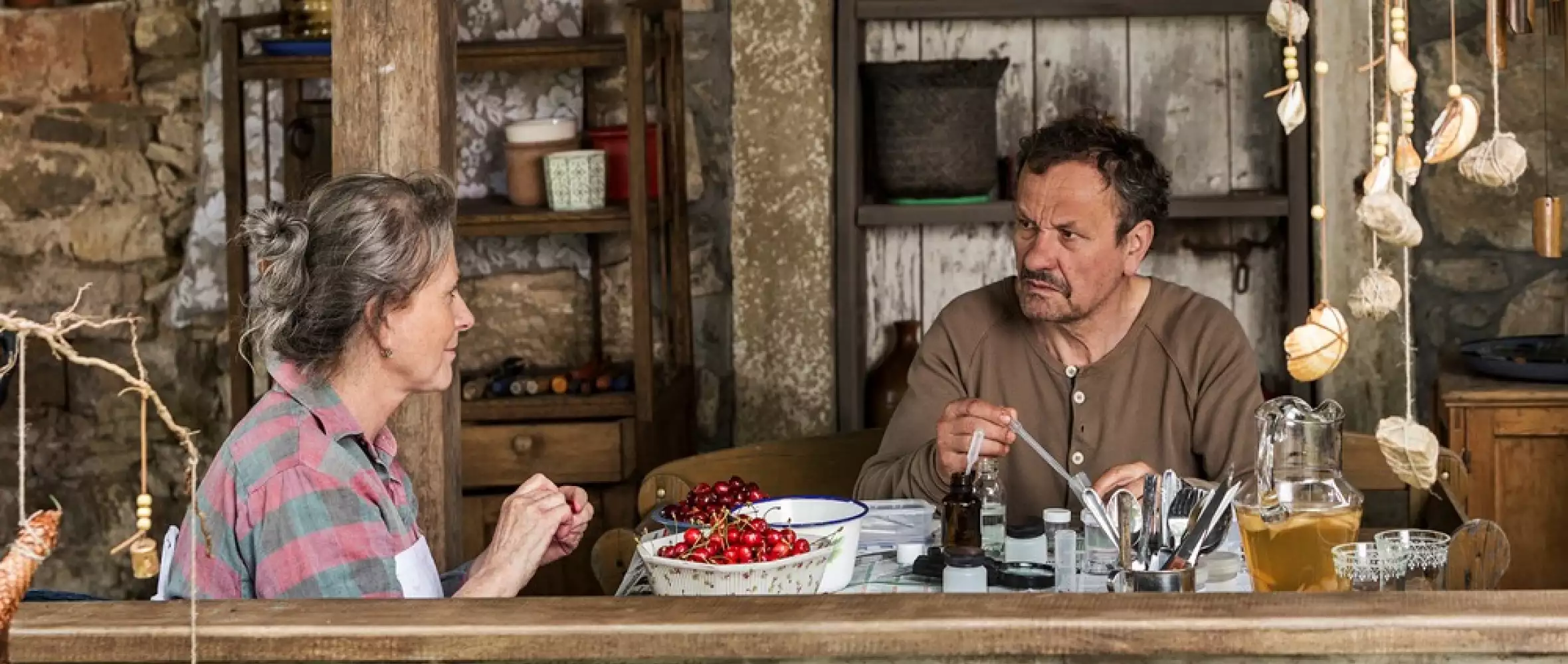
12 February 2017
Spoor: Agnieszka Holland About Her New Movie
Spoor: Agnieszka Holland About Her New Movie

Agnieszka Holland, the Polish director with deep connections to the Czech Republic, will be presenting her latest film, Spoor, an international coproduction with a strong Czech presence, in the Competition section of this year’s Berlinale.
Article by Hedvika Petrželková for Czech Film Magazine / Spring 2017
The film is based on the best-selling novel Drive Your Plow Over the Bones of the Dead, by Polish author Olga Tokarczuk. Holland co-wrote the screenplay with Tokarczuk and Czech screenwriter Štěpán Hulík, author of the successful HBO series Burning Bush (also directed by Holland) and Wasteland. The rest of the Czech contingent consisted of the production company Nutprodukce, Czech Television, UPP Studios, editor Pavel Hrdlička, and, in one of the starring roles, actor Miroslav Krobot. Spoor received support from the Czech Republic’s State Cinematography Fund as a minority coproduction (in the same round and at the same level as Romanian director Radu Jude’s Aferim!, which appeared in the Berlinale Competition section in 2015).
No Country for Old Women
The heroine of Holland’s new film is Janina Duszejko (played by Agnieszka Mandat), an energetic and slightly eccentric retired engineer who teaches schoolchildren English in a small village on the Polish-Czech border. A series of mysterious murders, with no apparent logic or motive, horrifies the local inhabitants, yet the mass killing of wildlife that comes with hunting season serves to pacify most of them. Janina, however, is a great animal lover, and, siding with the oddballs and “other” inhabitants of the Kłodzka basin, she decides to fight against the indifference around her, regardless of the consequences. “Janina may be eccentric, but at the same time she’s typical. Not just of her generation, but also for the sense of powerlessness that people have today — the law doesn’t protect them anymore, especially anyone who’s weak and isn’t part of the mainstream,” Holland says. “The other thing is she’s a woman of a certain age and isn’t a sex object anymore, which means basically she’s invisible. The people she’s trying to convince, the people she’s fighting, don’t pay any attention to what she says, or even her herself. They can’t even remember her name. She revolts against it all, trying to change the reality. Actually, being eccentric — New Age thinking, astrology and so on — is pretty typical for my generation. Most of my women friends are into that sort of thing. They’re searching for some higher meaning in this mixed-up world of ours.”
Spoor is the second time Holland has worked with the Czech production company Nutprodukce. They also collaborated on the HBO miniseries Burning Bush, which won a record eleven Czech Lion awards. “Agnieszka came to us about it, right after Burning Bush premiered. She’d been working on development for several years, and the film was in the financing phase. The Polish producer, Janusz Wąchała, was looking for partners, and Agnieszka suggested us. A Czech-Polish coproduction made sense in this case, since screenplays based on novels are popular in this country, plus the story is set on the Czech-Polish border and Agnieszka found she worked well with the creative people on Burning Bush. We were honored by the offer and we’re delighted to start work on the fi lm,” says Pavla Janoušková Kubečková.
Holland has felt close to the Czechs ever since her days as a student at the FAMU film school in Prague. “That’s where I spent the fi ve most important years of my life, when I was formed both as a person and as a filmmaker, so my relationship to the Czechs has always been very deep, and it got even stronger during the year I spent in Prague working on Burning Bush. In a way, it was a journey into the past for me, but it also made the dangers that I see in today’s world very real,” the director says. “Working with the young producers from Nutprodukce was creatively very engaging and personally satisfying.”
Besides Poles and Czechs, Spoor, a relatively large production by European standards, also used Germans, Swedes, and Slovaks. Pavla Janoušková Kubečková explains the benefits: “Apart from the obvious advantage, which is the pooling of funds for production, you have an expanded market to distribute the film. Movies from other countries in Europe tend to get only marginal distribution in theaters. But when there are local directors and actors, a movie’s got a much better chance of getting to more viewers, reaching a larger number of territories. This way, for instance, we can get more Polish films coming here and more Czech films in Poland. Besides that it also enriches the cultural space of the individual
states.”
Holland chose the outstanding Czech actor Miroslav Krobot for one of the starring roles. “He’s one of my favorite actors, not just Czech or Polish, but overall. Mirek’s got a unique personality that I find not only appealing but different. It’s so authentic, like he isn’t even an actor at all. He also put in a tremendous amount of work to learn the dialogues in Polish, which really are not easy. Most people think it just comes to him naturally,” she says.
Spoor may be a murder mystery, but it also offers a deep message, as well as a reflection on Czech-Polish relations. “In a way, it’s my most Czech film,” says Holland. “In the novel, Bohemia’s kind of like a paradise for Janina, since when things were hard for her, she walked across the border, to the nearest Czech town, and found a used bookshop where she got into a deep discussion with this man named Honza. Plus, she had this idea that the animals were fleeing to Bohemia to escape the hunters’ massacres.” The director adds: “It’s sort of this romantic notion that a lot of Poles have about the Czech Republic — especially ones like Janina — that it’s a place of individual freedom. I honestly don’t think it’s true, to me it’s not a paradise. But it could seem like that at times, when it gets oppressive in Poland.”
Holland has already got another new project under way: Charlatan, again with a Czech production team. The screenplay was written by Marek Epstein, based on actual events in the life of healer Jan Mikolášek. “It’s a very beautiful, very original screenplay,” Holland says. “I get a lot of scripts — mostly, but not only, from American producers — and it’s been a long time since I read anything that intrigued me as much as this. So I said yes, and together with Marek and Jarda Sedláček, from Czech Television, we started to work a bit on the script. I hope we’ll be shooting it this year, or early next year.”
Janoušková Kubečková says she and her colleagues from Nutprodukce are also putting together some new projects of their own. “We’re currently finishing up two documentaries: Nothing Like Before, directed by Klára Tasovská and Lukáš Kokeš, and With Mum on the Outside by director Veronika Jonášová. They’re both in editing now and will be finished this year. Besides that, most of our projects are in development: We’re developing several things with Štěpán Hulík; we’re working on a serial adaptation of the novel Invisible with Ondřej Hudeček, Kristina Májová, and Vašek Hašek; also the feature-length animation debut by Filip Pošivač and Bára Valecká; an adaptation of Viktoria by Kristina Májová and Zuzana Špidlová; an animation project with Matúš Vizár; and a few other things with Lukáš Kokeš, Klára Tasovská, and Petr Hátle.”


